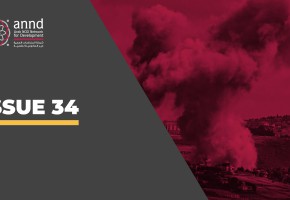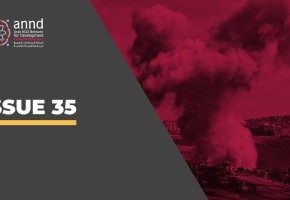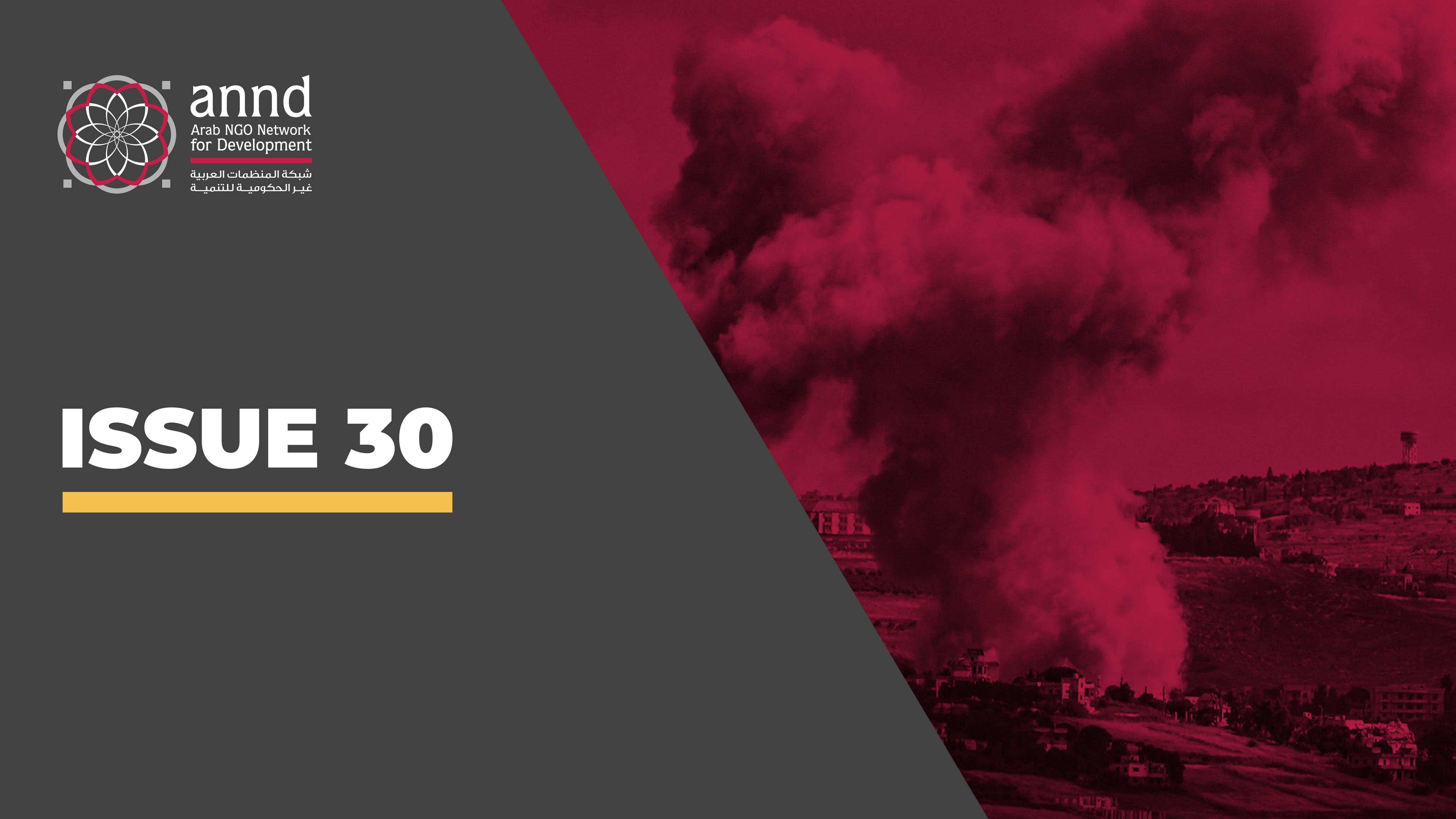
A Region on Fire
Issue 30 - October 26, 2024
Israeli restraint in its attack on Iran, but relentless destruction in Gaza and Lebanon.
Israel showed restraint in its attack on Iran, limited by boundaries set by the U.S., causing no major casualties or damage, as indicated by Iranian statements. This contrasts with the image projected by the Israeli Prime Minister, as the targets were carefully chosen by Israeli leadership to serve specific goals.
The exchange between Tel Aviv and Tehran remained limited to symbolic attacks, with both sides avoiding direct conflict or a broader regional war. However, this restraint didn’t apply to Gaza and Lebanon, nor to Iran’s regional allies. The U.S. pressure that restrained Israel’s actions toward Iran didn’t lessen the intensity of attacks on these allies. There’s a sense Israel may be compensating for its restraint toward Tehran with increased destruction in Gaza and Lebanon.

Israel and Iran
Early Saturday, Israel’s military announced it had carried out "precise" strikes on military sites in Iran, responding to what it described as months of Iranian attacks on Israel. The strikes focused on Iran's air defense systems, and Israel’s military spokesperson said Israel has the right to defend itself like any other country.
Four hours later, Israeli media confirmed the strikes had ended after hitting about 20 sites, avoiding nuclear or oil facilities.
In response, Iran’s air defense reported intercepting several Israeli attempts to hit sites around Tehran and other areas, with limited damage reported. Iran also stated it reserves the right to respond to any attack.
The New York Times reported that U.S. President Joe Biden was briefed on the strikes. According to Axios, Israel had warned Iran in advance, asking it not to escalate. This message was delivered through intermediaries, including Dutch officials and Russian President Vladimir Putin.
Lebanon: Battlefield Developments
Israeli officials said their ground operation in southern Lebanon is nearing completion and should end within one or two weeks.
Israeli airstrikes targeted Beirut’s southern suburbs, hitting the Haret Hreik area three times. These strikes followed threats from Israeli military spokesperson Avichay Adraee, who claimed the buildings were linked to Hezbollah. Airstrikes also continued in southern Lebanon, including Nabatieh and eastern Bekaa Valley. The Israeli army carried out large explosions in Kfar Kila and Adaisseh.
The Lebanese Ministry of Public Health reported that an airstrike on a health center in Bazouriyeh killed a paramedic and injured five others, raising the total number of paramedics killed to 164 and injured to 275 since the conflict began.
The Israeli army reported two civilian deaths in Majd al-Krum in Galilee, after attacks killed 10 soldiers and injured over 20 in Lebanon. Residents criticized the Israeli government for not providing enough protection as rockets hit the Galilee.
Hezbollah announced it conducted 48 strikes on northern Israeli cities and military sites, hitting soldier gatherings and destroying six Merkava tanks. The group warned residents of 20 Israeli settlements to evacuate, copying Israel's tactics in southern Lebanon.
In the past 24 hours, 76 airstrikes hit southern Lebanon and Nabatieh, bringing the total to 12,360 attacks. The Lebanese Health Ministry reported 19 deaths and 108 injuries in the last 24 hours, with total casualties at 2,653 dead and 12,360 wounded since the conflict began.
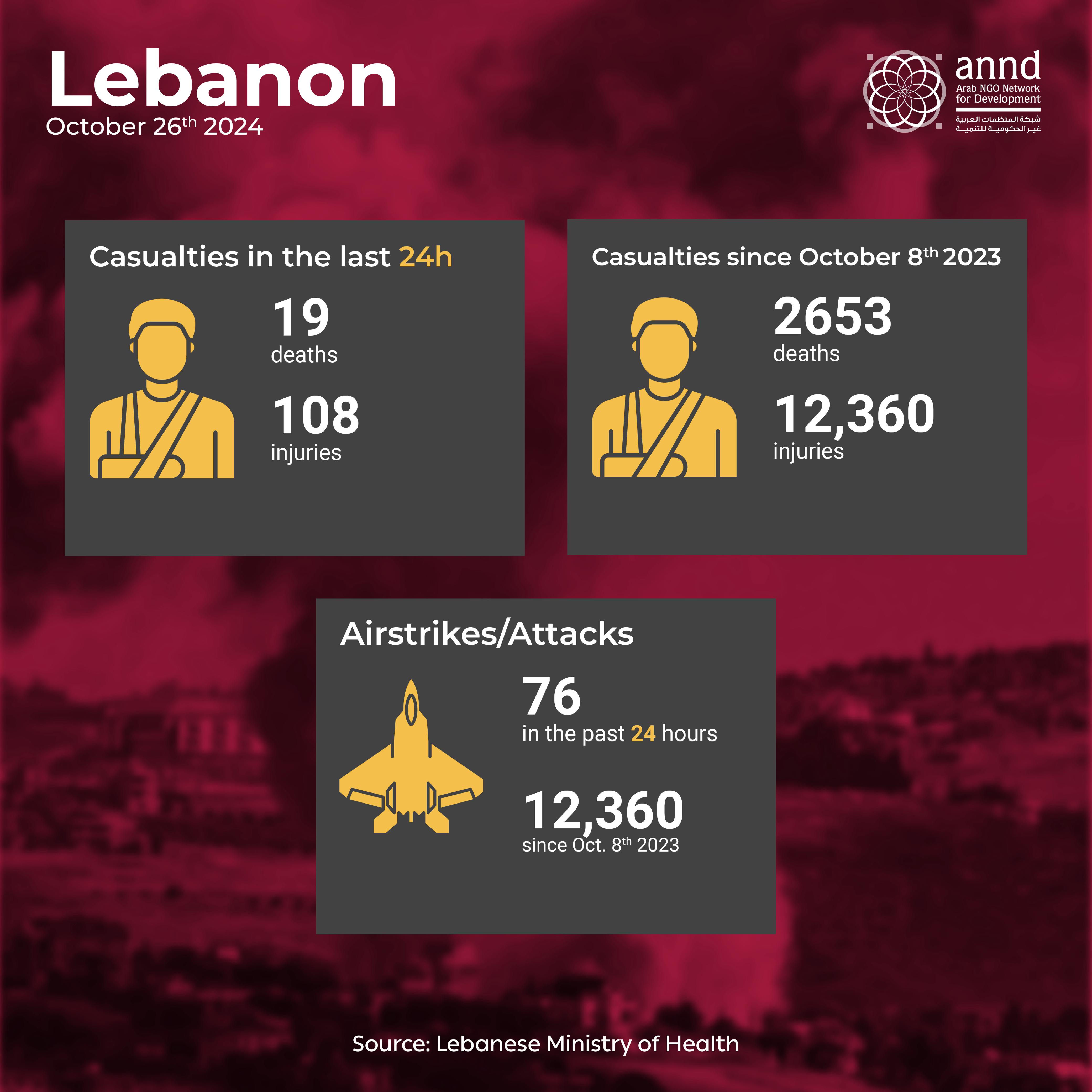
Lebanon: Political Positions
The Lebanese Foreign Ministry condemned Israel's airstrikes on multiple sites in Iran, stating that these attacks violate Iran's sovereignty and pose a serious threat to regional and international security.
Lebanon reiterated its call for international bodies, particularly the United Nations Security Council, to take action to stop the ongoing Israeli military escalation in the region, including the continuous aggression against Lebanon.
The Israeli army stated to CNN that the airstrike on Friday, which killed three journalists in Lebanon, is "under review." This incident sparked outrage from the Lebanese government and press freedom organizations. The Israeli army claimed it targeted a Hezbollah military building in Hasbaya, alleging that Hezbollah militants were inside.
Humanitarian Response in Lebanon
As of today, Friday, a total of 1,108 approved centers have been opened to shelter and receive displaced persons, with 931 of these classified as advanced emergency shelters.
The displacement from areas experiencing attacks continues, with a registered total of 189,169 displaced persons in approved shelters (42,907 families). The highest numbers of displaced individuals are recorded in the Mount Lebanon and Beirut areas, but the actual number of displaced persons is much higher.
From September 23 to October 26, 2024, the General Security reported the crossing of 349,796 Syrian citizens and 159,148 Lebanese citizens into Syrian territory.
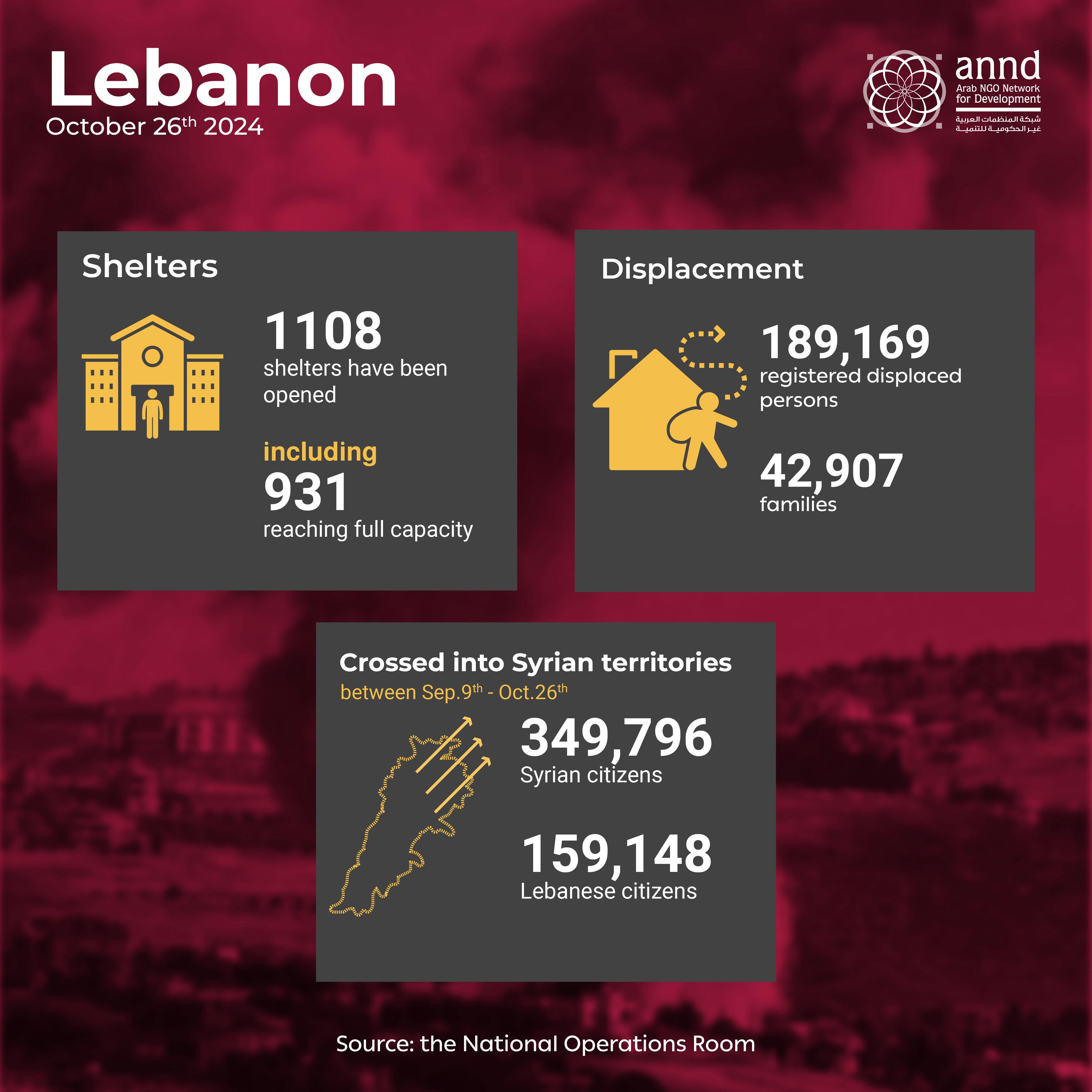
International Positions
The White House indicated that Israel’s strikes on Iran should end the direct exchange of fire between the two enemy countries, while warning Tehran of “consequences” should it respond. President Joe Biden has been updated on the situation and will continue to receive information. The White House confirmed that Israel is targeting military sites in Iran as an act of self-defense.
The Pentagon stated there are no changes to U.S. troop deployments in the region. An "F-16" fighter jet squadron has arrived to protect U.S. forces and support Israel. Israel informed the U.S. about its strikes on Iran beforehand.
The Speaker of the U.S. House of Representatives said the world should know that the U.S. fully supports Israel if Iran continues its violence, emphasizing Congress's backing of Israel's actions.
Other international reactions to the Israeli attack on Iran include:
- UN Secretary-General Antonio Guterres called for an immediate halt to escalatory actions in the Middle East and urged all parties to stop military actions in Gaza and Lebanon.
- UK Prime Minister Keir Starmer urged restraint and said Iran should not respond to the Israeli attack.
- The Russian Foreign Ministry expressed concern about potential escalation after the Israeli strikes.
- The French Foreign Ministry called on both Israel and Iran to avoid actions that could worsen tensions.
- The Jordanian military confirmed it did not allow military aircraft from either side to enter its airspace.
- The United Arab Emirates condemned the military actions against Iran and urged both sides to seek diplomatic solutions.
- The Qatari Foreign Ministry condemned the Israeli airstrikes and called for restraint and dialogue.
- The Egyptian Foreign Ministry expressed concern over the Israeli attack on Iran and condemned actions threatening regional stability.
- The Omani Foreign Ministry said the Israeli strikes are a violation of Iran’s sovereignty and international law.
- The Pakistani Foreign Ministry labeled the strikes as a dangerous escalation and called for action from the UN Security Council to stop Israeli aggression.
Arab Parliament President Mohammad Al-Yamahi stated that the Palestinian issue remains the top priority for Arabs, emphasizing the need for an independent Palestinian state with Jerusalem as its capital.
Cities across Europe have seen protests against the Israeli war on Palestinians in Gaza and the conflict in Lebanon.
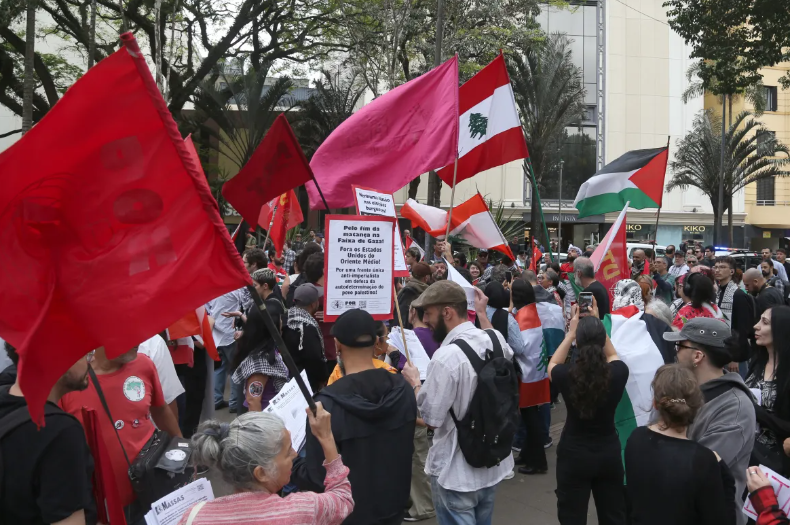
Gaza: Catastrophic Health Situation
The World Health Organization (WHO) says the health situation in northern Gaza is "catastrophic" due to heavy fighting around hospitals. They stress that attacks on healthcare facilities violate international law and call for an immediate ceasefire to protect the remaining healthcare services.
The Gaza Ministry of Health reports that Israeli forces have arrested all male medical staff at Kamal Adwan Hospital and detained several injured patients. They also destroyed medicines to stop medical teams from helping the wounded and damaged the hospital's buildings.
As of now, the death toll from the Israeli war on Gaza has reached 42,924, with over 100,833 injured. The ministry reported that Israel has committed several massacres against families, with many victims still trapped under rubble and inaccessible.
Additionally, the Gaza government announced that the Israeli army has stolen 2,300 bodies from cemeteries and destroyed several burial sites. Reports indicate that Israel is exhuming graves during its military operations.
UNICEF's Executive Director said that 2,500 children in Gaza urgently need medical care. The UN’s humanitarian chief warned that everyone in northern Gaza is at risk of death and called for an end to the violence against civilians.
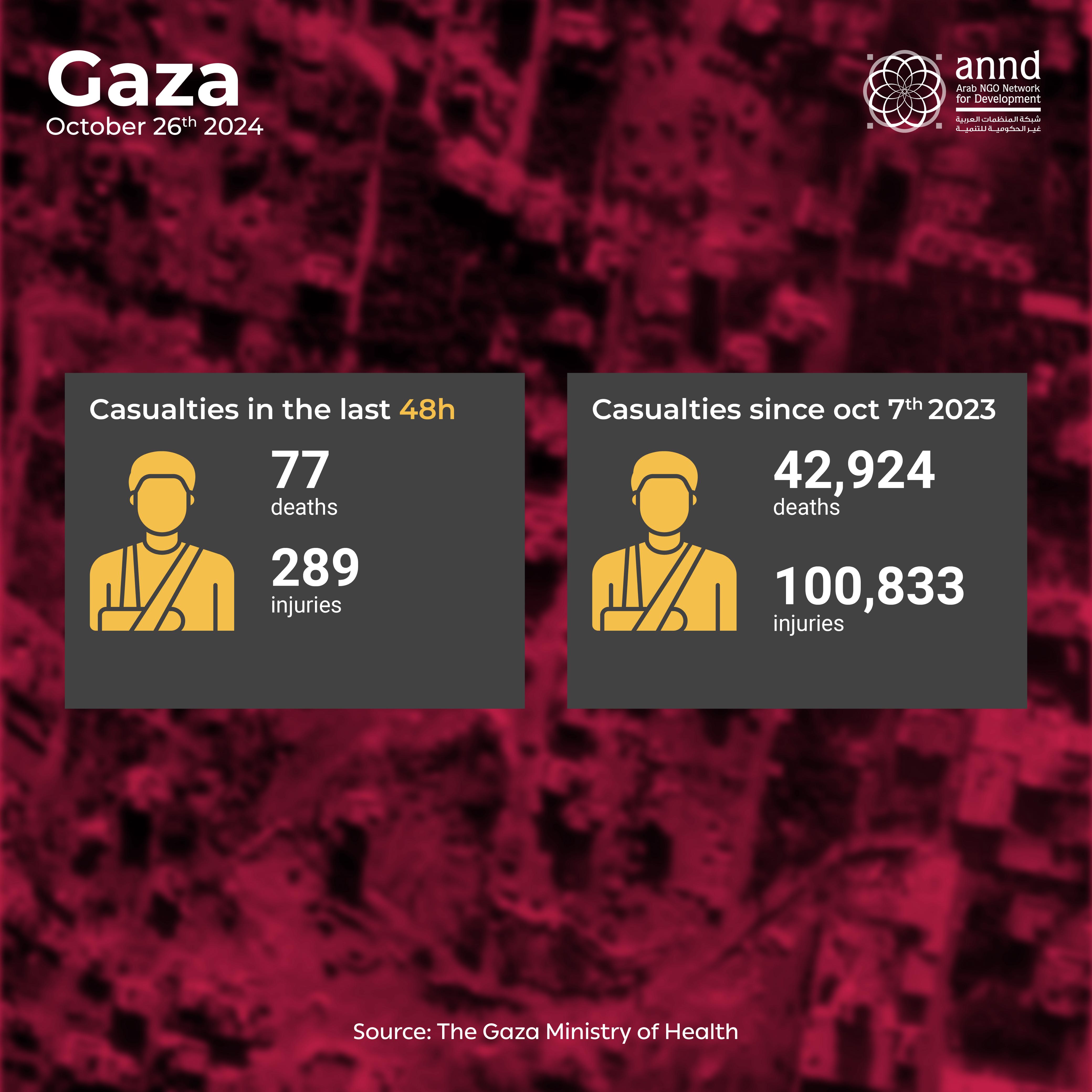
Recent publications


